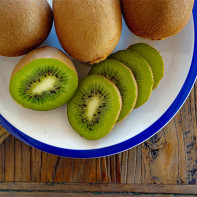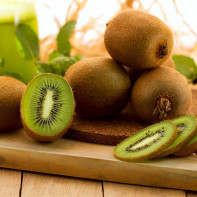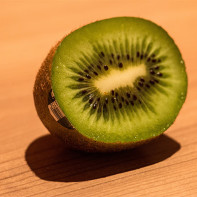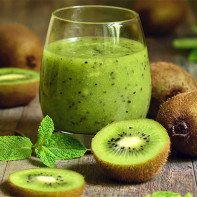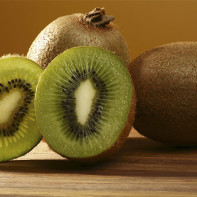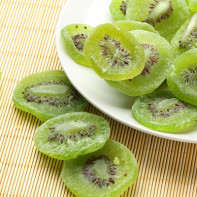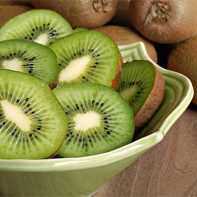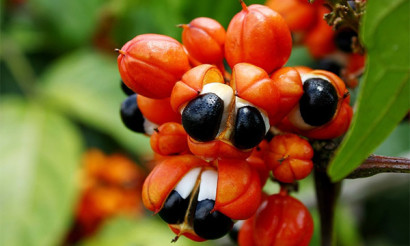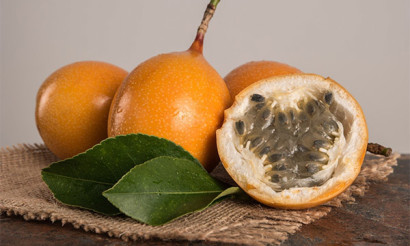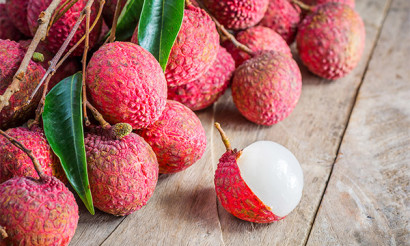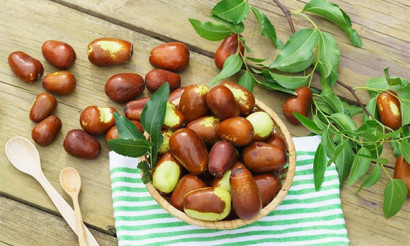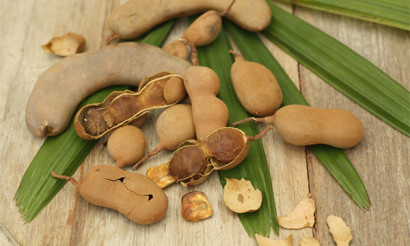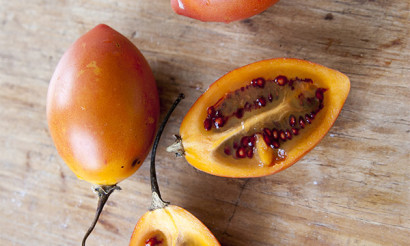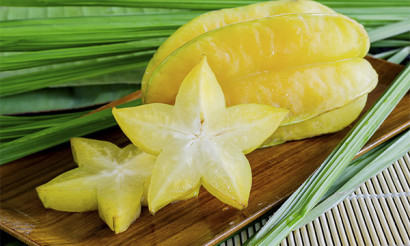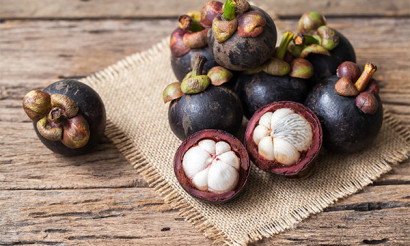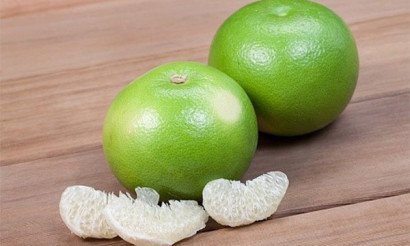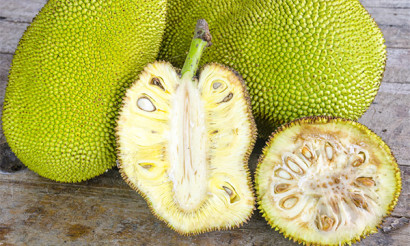Kiwi (fruit): useful properties and contraindications
A kiwi is the fruit of the tree-like liana Actinidia. Usually, when people hear the word "kiwi", they imagine a small, round, green fruit - but in fact, this is not always the case. Kiwis come in many shapes and sizes. Fruits vary in size, shape, degree of "hairiness," juiciness level, texture, taste, and color - the flesh can vary in color. Tastes can also vary greatly - some fruits are very tasty, while others are clearly not meant to be eaten.
- Composition and calories
- What are the benefits of kiwi
- General benefits
- For Women
- For Men
- Pregnancy
- For breastfeeding
- For children
- Can I Eat a Kiwi when losing weight?
- Dried kiwi: benefits and harms
- Kiwi Juice Benefits
- Kiwi in medicine
- Diabetes
- In pancreatitis
- For gastritis
- For the bowel
- For constipation
- For gout
- For colitis
- For the liver
- For hemorrhoids
- For cholecystitis
- Kiwi in cosmetology
- For Face
- For hair
- Hazards and Contraindications
- How to Choose and Store a Kiwi
- Can I freeze or freeze?
- How to Eat a Kiwi Fruit
- How to peel them
- How much can I eat per day?
- Can I Eat a Kiwi at Night and on an empty stomach?
- Can I Eat a Kiwi Rind?
- What to make with a kiwi?
- Can I Give Animals a Kiwi?
- Interesting Facts about Kiwis
Actinidia is a deciduous perennial that produces kiwi fruit. The stems of the plant are flexible and the smooth bark is gray-brown in color. The lianas can braid various poles and trees. They can be up to 50 m long and up to 3 cm thick. Despite the variety of varieties, the fruits are usually covered with a hairy brownish skin, and their flesh is tasty and fragrant. There are many seeds in the fruit, they are small and hardly perceptible when eating, so they are usually not removed before eating. Fruits have an oval shape, the size comparable to a chicken egg, weighing about 100 grams.
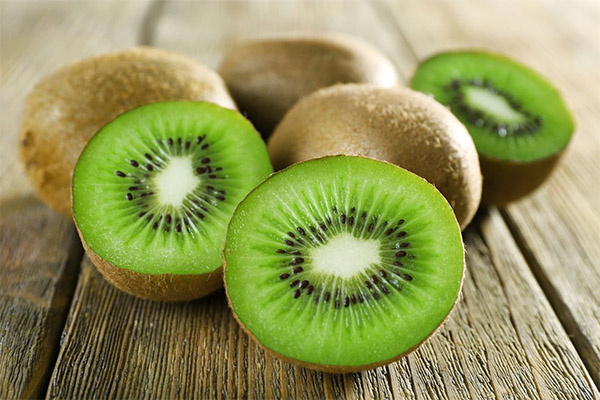
This delicious fruit came to us from China. In the early 20th century, the kiwi spread to the territory of New Zealand. It was there that the fruit began to be grown en masse, and soon they became very popular among American servicemen. At that time kiwi was called "Chinese gooseberry", but in the 60's producers gave them a new name - "kiwi" to increase the attractiveness of the product. The name quickly gained popularity and was already used in the American market. Currently, Italy, New Zealand and Chile account for more than 70% of all kiwi production, with Italy producing about 10% more fruit than New Zealand and Chile about 40% less.
Composition and calories
100 g of the product contains:
- calories - 47 kcal;
- protein - 0.8 g
- fats - 0.4 g;
- Carbohydrates - 8.1 g.
A kiwi is 84% water. In addition to liquid, the fruit contains proteins, fats and carbohydrates. Kiwis are rich in fiber, nicotinic acid, monosaccharides and disaccharides. The fruit has many vitamins, most of which are preserved by the canning procedure. The flesh of the fruit has a special acidity, which helps them not to lose useful elements.
What is useful for kiwifruit
General benefits
- Useful for the heart. With the regular consumption of kiwi fruit, the substances contained in the fruit help protect the heart from various damages. This fruit contains potassium, which is known to help in the processes of blood thinning and clot removal, which ultimately reduces the pressure on blood vessels. It also increases HDL levels in the blood. In addition, kiwi lowers triglyceride levels. This fruit also contains quercetin, an antioxidant polyphenol, which may help reduce the risk of heart disease.
- Prevents the development of cancer. Cancer is a terrible disease, and the phrase, "prevention is better than cure," could not be more appropriate for this disease. Kiwi can reduce the risk of cancer. The fruit is rich in vitamin C, which helps the body fight free radicals that damage skin cells, which can trigger skin cancer. One fruit will be enough to meet 77% of your daily vitamin C needs. In fact, a kiwi contains more vitamin C than an orange and a lemon combined. In addition, Chinese gooseberries can help prevent colon cancer. The flesh of this delicious fruit contains soluble fiber, which promotes the growth of beneficial bacteria in the colon, reducing the risk of colon cancer.
- It helps with respiratory diseases. Kiwi, thanks to the presence of vitamin C, is a must-have food for those who suffer from respiratory illnesses. The fruit soothes the respiratory tract and relieves the symptoms of the disease. Daily consumption of kiwi during illness can get rid of wheezing and nasal congestion. It also relieves shortness of breath and chronic cough.
- It prevents the degeneration of the yellow spot. Studies have shown that including kiwi in the diet reduces the risk of yellow spot degeneration. This tropical fruit is rich in lutein (171 mg for every 100 grams) and antioxidants that support eye health. The optimal concentration of these substances in the fruit makes it an essential product for the prevention of eye diseases, including yellow spot degeneration. In addition, kiwi is rich in vitamin A (1 g per 100 g), which is also good for the eyes.
- Improves mood. This tropical fruit is high in serotonin, which helps improve memory as well as mood. Regular consumption of the fruit regulates appetite and improves sleep. In addition, kiwi is a great helper in the fight against depression. A study showed that serotonin in kiwi improves sleep efficiency by 15%, hence, Chinese gooseberries can help with insomnia.
- Supports bone health. Those people who suffer from weakness and brittle bones should include kiwi in their diet. This fruit is rich in vitamin K and calcium, minerals that are essential for bone health. They also help reduce the risk of bone damage and osteoporosis.
- It has antifungal and antibacterial properties. Kiwi seeds help fight fungi and bacteria. It is also worth noting that the pulp of some varieties of Chinese gooseberries has the same properties.
- Protects DNA. The kiwi fruit has the amazing power to help protect your DNA from damage. They contain phytonutrients, compounds that give this great fruit special antioxidant properties. In addition, kiwifruit contains flavonoids and carotenoids - substances that have antioxidant activity and help protect DNA from damage.
- Strengthens the immune system. The vitamin C found in kiwi can help improve immune system function. Chinese gooseberries also contain large amounts of antioxidant compounds and vitamin E, which help increase the number of T-cells in the body, which helps strengthen the immune system.
- Normalizes the acid-alkaline balance. The minerals contained in kiwi neutralize excessive acidity in the stomach, getting rid of discomfort and nausea, conditions that usually accompany these disorders. Acid-alkaline balance promotes youthful skin, good sleep and a strong immune system.
- Maintains the health of the kidneys. The kidneys continuously filter the blood, removing waste products from it and keeping it clean. Over the years, the amount of insoluble waste can build up in them, causing blockages and discomfort. This produces kidney stones, which are made up of various calcium salts. The potassium contained in kiwi helps to reduce the likelihood of this salt accumulation, hence preventing stone formation.
- Useful for dengue fever. This disease can lead to a decrease in the number of platelets in the blood. A study conducted on patients with dengue fever showed that those who ate 2-3 kiwi fruits a day had a dramatic increase in platelet count compared to those who ate less or no kiwi. This fruit also helps to replenish lost energy and recover faster.
- It is useful for anemia. Kiwis are recommended for anemia because the fruit brings hemoglobin levels back to normal. The iron contained in the fruit plays a vital role in the production and maintenance of red blood cells, as well as in energy metabolism. In this case, you should consume kiwi in combination with foods that promote iron absorption and avoid dishes that have properties that inhibit it.
- Relieves inflammation in the mouth. Kiwis are recommended for people who suffer from oral ulcers and boils. This condition usually causes difficulty when eating salty, spicy foods or even when drinking water. This is where kiwi comes to the rescue again, because the fruit contains vitamin C, which eliminates inflammation in the mouth and can significantly improve the condition in just a few days.
- It helps with protein absorption. Sometimes the body has trouble absorbing protein. This is often caused by an insufficient amount of enzymes that can break down this substance. Protease enzymes that break down proteins are found in some foods, including kiwi. Therefore, regular consumption of the fruit will help the body to better cope with the absorption of protein.
- Fights hair loss. Fruits rich in vitamins C and E help fight hair loss and keep it healthy. Kiwis are abundant in both vitamins. This tropical fruit also contains minerals-magnesium, zinc and phosphorus-that stimulate blood circulation, thereby speeding up hair growth. The kiwi contains iron, which is necessary for improving the health of the hair.
- Useful for dry skin and brittle hair. The high content of omega-3 fatty acids in kiwi seed oil is very good for moisturizing hair and skin. The oil is best for dry and unruly hair. In addition, regular consumption of kiwi strengthens the blood vessels. It helps cure dry skin and gets rid of dandruff and eczema.
- Prevents premature graying. It happens that already at the age of 25 a person begins to go gray. Luckily, nature has a solution to this problem as well. The high amount of copper in kiwi maintains the natural color of the hair, preventing premature graying.
- It removes dark circles under the eyes. Irregular working hours very often lead to problems with appearance. Most often this manifests as bags and dark circles under the eyes. To solve this problem, you can use a kiwi. It will be enough to place the finely sliced fruit on the eyes for 10-15 minutes. After that, the slices should be removed and your face washed. If you carry out this procedure every day, you can already see significant improvements in a short time.
- Prevents skin damage. Chinese gooseberries are rich in amino acids that fight the harmful effects of sunlight and prevent skin damage. In addition, the cooling properties of the fruit help soothe the damaged area. For an instant effect, you will only need to place a few slices of kiwi on the sun-affected area of the body.
- Fights acne. Kiwis have anti-inflammatory properties. The fruit helps fight acne by clearing pores and preventing potential inflammation. Topical application of kiwi pulp to the skin can treat various forms of skin inflammation - boils, pimples and abscesses.
- It has anti-aging properties. The substances contained in kiwi are designed to fight free radicals, thereby they slow down the onset of aging, the appearance of wrinkles and age spots. In addition, vitamin E contained in kiwi keeps the skin moisturized. It participates in the regeneration of skin cells and makes the skin more youthful.
For women
Kiwis are very useful for women. This fruit helps maintain youthful skin and hair. The skin with age begins to lose its elasticity, forcing to take drastic measures to maintain its tone. For example, expensive skin care products are purchased, surgical interventions are undertaken. But you can use kiwi instead. Applying mashed fruit to the skin is a great way to transport important nutrients to the skin layers and maintain skin elasticity.
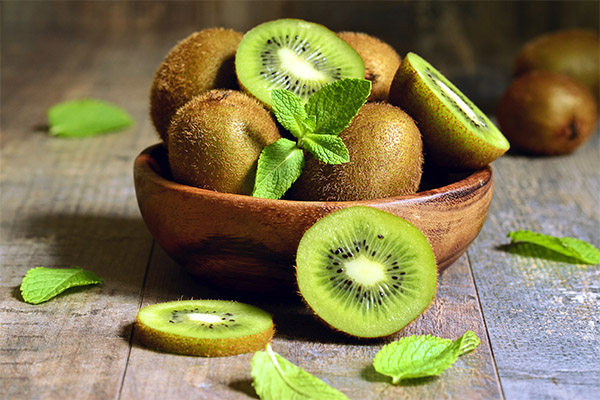
The fruit will also help support collagen production. This will help wounds heal more quickly and prevent dry, rough skin. Kiwifruit tones the skin and improves sleep. Studies have shown that the fruit affects the quality of sleep. Regular consumption of fruit will help to increase the duration and efficiency of rest, which, consequently, will have a positive impact on the appearance.
For women who want to get pregnant, experts recommend taking foods rich in folic acid. Kiwi is a tasty food that contains folic acid. It is important to remember, however, that folate is destroyed by food processing, so eating fresh fruit is best.
For men
Kiwis are a rich source of zinc. This substance plays an important role in male fertility. Zinc has antioxidant properties that protect sperm from free radicals that can damage it. According to studies, men with higher levels of zinc in their bodies have higher sperm counts and better sperm quality, which in turn increases the likelihood of conception. When combined with folic acid, zinc can contribute to even greater sperm production (sperm count increases by 50%).
Also kiwi will have a positive effect on the body of athletes. During the period of active sports, it is necessary to organize a proper diet. In addition to the consumption of high-energy food, the body needs nutrients that will help it recover from exercise. Kiwi contains potassium, which regulates water balance and supports normal muscle function.
When pregnant
Kiwi is a great product for expectant mothers, because it helps to prevent negative manifestations during this period. The substances contained in this fruit are involved in the transfer of vitamins from the pregnant woman to the fetus. The normal course of these processes will prevent some birth defects - cleft spine, a condition in which the spinal cord cannot develop normally. It will also prevent neural tube defects and contribute to the development of the brain and cognitive functions of the child.
In addition, kiwi is rich in folate, one of the most important nutrients. It supports the development of the fetus in utero. Folate stimulates the production and maintenance of cells, ensures the healthy development of vital organs of the fetus.
The high content of vitamin C in kiwi helps strengthen the immune system of the unborn child. The fruit forms neurotransmitters, which are important for the proper functioning of the brain. Kiwis are rich in natural sugars that can help satisfy cravings for sweet foods without harming the fruit. Chinese gooseberries do not cause insulin spikes because they have a low glycemic index. Regulating blood sugar levels is very important because gestational diabetes is quite common during pregnancy.
Along with pregnancy comes strong hormonal fluctuations that lead to emotional instability. The serotonin present in kiwi helps to balance even the most drastic mood swings.
Pregnant women are often plagued by constipation and hemorrhoids, which is quite normal during this period. Kiwis are one of the best prebiotics. Prebiotics contain enzymes, dietary fiber and phenolic compounds, feed the probiotic bacteria in the digestive system. Eating kiwi helps prevent constipation, diarrhea, gastritis, bloating and abdominal pain.
To ensure a healthy and safe pregnancy, it is enough to consume up to 2-3 kiwi per day. In cases of allergies, gastritis or other digestive problems, you should avoid eating this product during pregnancy.
When breastfeeding
During the period of breastfeeding, a woman needs to follow the rules that relate to dietary restrictions. The food should be rich in vitamins and micronutrients, which are necessary to strengthen the immune system and restore a woman's energy. All consumed substances go into breast milk and already with it - in the body of the baby. Kiwi - a product that helps to eliminate toxins and metabolic products from the body. It is worth noting that experts are divided on the use of Chinese gooseberries during lactation. Exotic fruits, including kiwi, are allergens. Therefore, the body's reaction to this product can be unpredictable. The worst thing is that the allergy can also manifest itself in a child.
It is also worth noting the contraindications. It is not recommended to eat the fruit for women with gastrointestinal pathologies, for example, with ulcers, gastritis and kidney disease. It should also be taken into account that kiwi has a laxative effect, so the child may have problems with stools.
Here are some recommendations for eating kiwi during pregnancy:
- If a woman consumed the fruit before and during pregnancy - this is the key to normal tolerance of the product.
- If the baby is already 3 months old, you can try to introduce kiwi into the diet. In some cases, experts recommend waiting six months.
- In the diet of a nursing mother kiwi should be introduced in stages. At the first reception you need to eat a small piece, then monitor the reaction of the baby. If there are no allergic reactions, the portion can be gradually increased.
- It is forbidden to exceed the daily norm (up to 2 fruits per day). Excessive consumption of products, especially allergens, can cause health problems in adults, let alone children.
- In case of any doubts, you should consult a pediatrician.
For children
Kiwi is a useful and tasty fruit, which children are happy to eat. Because of its high vitamin C content and other important minerals such as calcium, magnesium, iron and sodium, kiwi will support an actively growing and developing body. One serving is enough to satisfy a child's daily requirement for vitamin C. This, in turn, will help strengthen the immune system, iron absorption, and help better wound healing.
This fruit provides relief from constipation due to its high fiber content. It is rich in disease-fighting antioxidants that reduce the risk of chronic diseases, especially those related to heart disorders. Kiwis contain phytonutrients that help repair DNA and protect the body from cancer.
Eating a kiwi every day can reduce the likelihood of asthma. This fruit also helps reduce blood fat levels.
Experts are divided on the age at which a child can be encouraged to eat a kiwi. Some say that it can be done when the baby is already 3 years old, others do not recommend giving children the exotic fruit until they are 5 years old. Today on the Internet in various forums parents write that at 6 months they began to feed their child kiwi fruit. But this can lead to serious complications and side effects. And in the case of a severe allergic reaction can even be fatal, so do not experiment and risk the health and life of the child. At 3 years of age your baby can be given up to 30 grams of pulp (half a fruit) a day, from 5 years are already allowed to eat a whole fruit up to 2 times a week.
Can I eat a kiwi while losing weight?
Kiwi is a product that promotes weight loss for several reasons. The fruit is rich in fiber and at the same time contains few calories. Dietary fiber induces a feeling of satiety, promotes satiety, reduces the absorption of nutrients from the intestine, as well as interacts with the secretion of hormones of this organ. This is why experts recommend increasing the amount of fiber by consuming large amounts of fruit, including kiwi fruit, during the weight loss period. The recommended daily intake of fiber should be 25-30 grams.
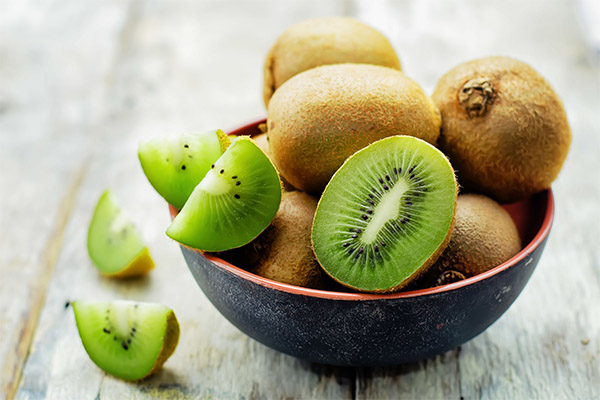
Consumption of kiwis is a great option to add more fiber to the diet. People who are overweight usually have high triglycerides and LDL cholesterol, while HDL cholesterol is low. Kiwis contain polyphenols and antioxidants that help lower lipid levels. People who consume at least 1 kiwi fruit a week have higher HDL cholesterol levels and lower triglyceride levels than those who eat less than 1 fruit a week.
Kiwis have a low glycemic index and contain an acceptable amount of carbohydrates, making them a useful fruit for weight loss. Studies show that consuming dairy products and calcium-rich foods (including kiwis) can reduce fat intake and thus keep body weight in check. When vitamin C levels are sufficient, the body burns 30% more fat. People who are deficient in vitamin C may have difficulty losing fat mass. Kiwis, on the other hand, are one of the richest fruit sources of vitamin C.
Chinese gooseberries contain proteolytic enzymes that digest proteins. It is rich in folic acid, which helps people on a diet to absorb B vitamins and iron. The fruit also contains vitamin E, which prevents sagging skin and helps it recover from weight loss.
Dried kiwi: benefits and harms
Dried fruits are just as beneficial as fresh ones. They help get rid of constipation and fight irritable bowel syndrome. Dried kiwifruit can act as a prophylactic against periodontal disease. They also help to strengthen bone tissue, prevent age-related skin pigmentation and maintain the water-fat balance of the skin. Dehydrated fruit contains a natural compound inositol, which, once in the body, improves mood, brain activity and fights depression. It is worth noting that dried fruit can be stored for up to six months (in the refrigerator), so in this form you can enjoy delicious and useful fruit for a long time.
The problem of dried fruits is a large amount of sugar in their composition, and kiwi is no exception. Therefore, it is not recommended to buy dried kiwi in the store, and it is better to dry them yourself.
The benefits of kiwi juice
Regular consumption of kiwi juice will help the body to cope with the burning of fat, which blocks blood vessels and thus provokes the development of thrombosis. With the daily consumption of freshly squeezed juice after a month, about 15% of the fatty acids in the blood will be removed from the body.
As far back as ancient times in China, the juice was used to improve digestion. In addition, the juice prevents the formation of kidney stones, helps to soothe and dull the pain in case of rheumatism. Such a drink can help slow down the loss of natural hair color. Fruit juice satiates the body with energy, reduces fatigue and activates mental activity. Experts recommend consuming freshly squeezed juices for the prevention of various diseases and maintaining the overall condition of the body.
Kiwi in medicine
In the field of medicine, this fruit is used very actively, especially when it comes to dietetics. Kiwi has a perfect balance of nutrients and calories, so it is very appreciated in this area. In addition, the product prevents cancer, pathologies of the heart muscle, joints, nervous system and helps to get rid of excessive fat accumulation.
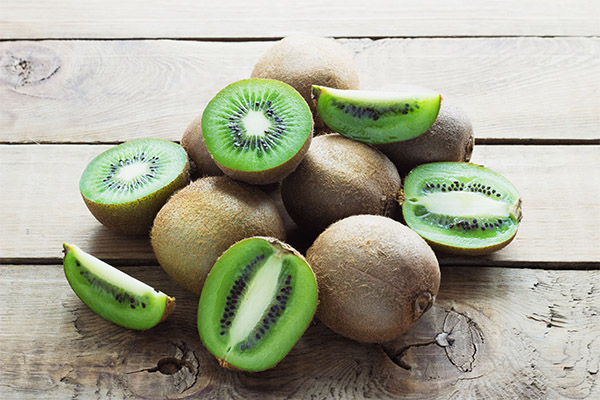
In case of diabetes
It is possible to consume kiwi with diabetes. The substances contained in this fruit help to normalize blood glucose levels and participate in the process of eliminating toxins and waste from the body. Some experts say that type 1 diabetes may be associated with disorders of redox reactions. Kiwis contain a lot of vitamin C and other elements that regulate these processes.
Diabetics are often deficient in ascorbic acid, and kiwi is the best option for replenishing this substance. In the case of type 2 diabetes, Chinese gooseberries will help reduce the risks of hypertension, atherosclerosis, thrombosis, and enrich the body with iodine. In diabetes, kiwi fruit can be consumed in natural form or drink freshly squeezed juice. The daily rate of consumption - up to 2 fruits.
With exacerbation of chronic diseases of the gastrointestinal tract and kidneys, as well as in the case of a severe course of the underlying pathology, it is forbidden to consume kiwi.
Important: The glycemic index of kiwi is 50 units.
In pancreatitis
In the case of chronic pancreatitis (during prolonged remission) kiwi can be eaten. The permissible daily rate is up to 2 fruits. You should eat fully ripe soft fruit. Fruits must be peeled. It is also recommended to grate the fruit on a fine grater before consuming.
In the acute phase of pancreatitis, it is forbidden to eat kiwi, otherwise the product can provoke irritation of the pancreas.
Gastritis
With gastritis with high acidity, it is forbidden to eat kiwi. With reduced acidity the situation is different, so the fruit can be included in your diet. In this case, consume Chinese gooseberries should be in small portions and preferably before dinner.
For the intestines
Kiwi supports the digestion of proteins and helps to increase the speed of their absorption by the intestine, which facilitates the work of this organ. Chinese gooseberries can also help effectively cope with bowel emptying problems, as they have a mild laxative effect.
When you are constipated
Kiwi can be used for constipation, as the fruit helps to soften stools and facilitates their elimination. In the case of constipation, the product can be given to children, the elderly and even pregnant women.
When gout
In kiwi contains a considerable amount of ascorbic acid, so this fruit can normalize the level of uric acid. For gout, it is recommended to consume Chinese gooseberries in their natural form. In addition, the product is rich in vitamin C, which will help prevent the development of gout in men.
In colitis
Specialists recommend refraining from the consumption of kiwi with colitis, because this product has a laxative effect, which is undesirable in this case and can provoke the aggravation of symptoms of the disease.
For the liver
Kiwi is one of the best solutions for people who suffer from liver disease. As mentioned earlier, this fruit contains vitamin C, which helps protect the liver from damage. This vitamin is a powerful antioxidant that removes harmful free radicals and helps in cell regeneration, thereby having a positive effect on this organ.
In hemorrhoids.
Kiwi is an effective natural laxative, so it can and even should be consumed in hemorrhoids, but again in moderation. Thanks to this fruit, you can get rid of constipation in a short time, while reducing the chances of exacerbation of hemorrhoids.
For cholecystitis
Consumption of foods with a high content of acids, which include kiwi, with cholecystitis is not recommended, because it can provoke an exacerbation of inflammation.
Kiwi in cosmetology
A kiwi is not only a delicious and nutrient-rich fruit, but it is also a great natural ingredient for skin care. It contains nutrients that are good for the skin. For example, vitamins C and E are essential for strengthening and rejuvenating skin health, while antioxidants neutralize free radicals that impede cell regeneration processes. Regular consumption of juice helps the body to eliminate toxins and impurities, which leads to a healthier skin. In addition, kiwi contains a large amount of vitamin C, which promotes the formation of collagen in the scalp, which has a positive effect on the hair. On the basis of this fruit you can make a variety of masks for rejuvenation and revitalization of the skin and hair.
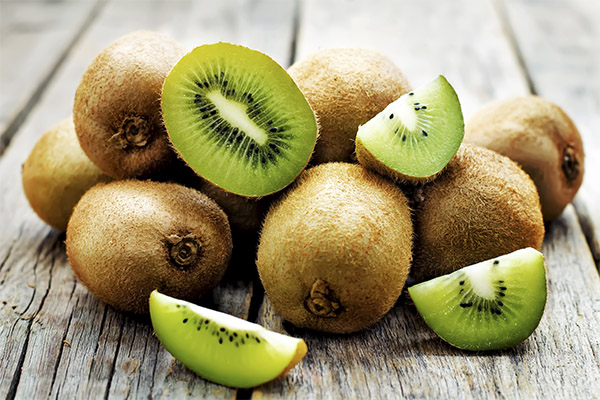
For Face
Nourishing mask
- Crush banana (1/2 fruit) and kiwi (1 piece).
- Mix fruit pulp and add sour cream (2 tbsp.).
- Apply the mask to the face (except for the lips and the eye area).
- Leave for 10-15 minutes.
- Wash your face with water.
- Apply moisturizing lotion to the skin.
Moisturizing mask
- Mash a kiwi (1/2 fruit) to a state of pulp and add soft cottage cheese (1 tbsp.).
- Apply the mask to cleansed skin.
- Wait 15 minutes. Wash your face with water.
Whitening mask
- Grind a kiwi (1 piece) and add poppy seeds (1 tbsp.) and heavy cream (1 tbsp.).
- Apply the mask to the face with massaging movements.
- Leave it for 15 minutes. Wash your face with water.
- Apply moisturizing lotion.
For oily skin
- Whip in a blender ½ kiwi fruit.
- Dissolve black cosmetic clay with water to the consistency of sour cream, then add the fruit puree.
- Apply to the face for 15 minutes. Rinse the composition from the skin.
For Hair
Nourishing mask
- Mash a kiwi (2 pieces) to a pulp.
- Apply to hair and put on a cap.
- Leave it on for 30 minutes. Wash your hair with water.
Apply it up to once a week.
For dry hair
- Add burdock oil (2 tbsp.), honey (2 tbsp.) into a hen's yolk (2 pcs.) and mix.
- Add to the mixture grated into a pulp kiwi fruit (1 tbsp.).
- Apply mask to slightly damp hair.
- Wait 1 hour. Shampoo the hair.
Make mask up to 3 times a week.
Mask for hair loss
- Crush a kiwi (1 piece) and add kefir (1 cup).
- Apply the mask to the roots of the hair, put on a cap (of polyethylene) and wrap with a towel.
- Wait 30 minutes. Shampoo the hair.
Make a mask for two times a week.
Harms and contraindications
Kiwi is a very valuable fruit and contains a large number of nutrients. However, not always and not in all cases it has a positive effect on the body. Organic acids and other compounds can have a negative impact on human health in the presence of certain diseases.
- Chinese gooseberries are forbidden to eat in case of gastritis with high acidity and stomach ulcers.
- It is also not worth including this product in your diet in the case of stomach and intestinal inflammation.
- People with acute kidney disease need to be careful with this fruit and strictly follow the measure of consumption.
- Because of the laxative effect of the product, it is not worth to eat it in case of food poisoning.
Kiwi refers to strong allergens. Allergy to Chinese gooseberries may appear in the form of skin rash, inflammation of the throat or tongue. In rare cases there may be severe swelling of the nasopharynx and larynx. Therefore, before using it is worth checking whether a person does not have an intolerance to the product.
How to choose and store a kiwi
When choosing this fruit, you need to pay your attention to the degree of hardness of the fruit. He should be moderately soft, that is, with a slight squeeze the fruit should be easy to do so. The smell is also important - a quality ripe kiwi has a pleasant, unctuous fruity aroma. The hairiness of the fruit is also worth paying attention to. A good product doesn't have stiff hairs, and they can easily be removed. There should not be any spots on the fruit. No drips should come out when pressing on the area where the stalk is located. If it does, the fruit is spoiled.
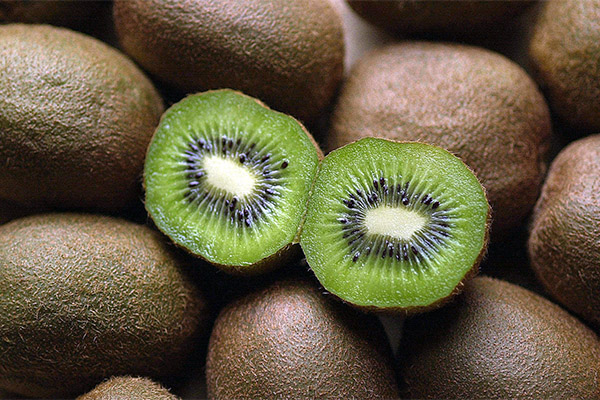
It is advisable to store kiwifruit in the refrigerator (at a low temperature, but not below 0°C). The fruit can be stored for about 30 days. As a rule of thumb, hard fruit can keep a little longer. Unripe kiwifruit should be stored at room temperature. The fruit can be placed in a plastic container with holes for ventilation (kiwifruit needs good air exchange).
Can I freeze them?
A kiwi can be kept frozen. However, the fruit should be frozen in pieces, not whole. For this purpose, the fruit should be peeled, cut into small rings or cubes, put in a plastic bag or a container and send it to the freezer.
How to eat a kiwi fruit
There are quite a number of ways to eat a kiwi. The fruit is eaten both peeled and peeled. Juices may be squeezed from the fruit, or the product may be ground to a mushy consistency and added to a variety of dishes.
How to peel
The easiest and fastest way is to clean the kiwi using a knife and a glass:
- Cut the fruit in half.
- Thread one half onto a glass (so that it separates the pulp and skin).
- Press down on the fruit.
- The pulp will fall right into the glass, the skin will stay in your hand.
- Remove the pulp from the glass.
- Do the same procedure with the other half.
How much a kiwi can eat per day?
Consumption of a kiwi fruit is up to two per day.
Can I eat kiwifruit at night and on an empty stomach?
If the stomach is too acidic, eating a kiwi on an empty stomach may provoke heartburn. If you have reduced acidity, you can safely eat a kiwi in the morning on an empty stomach.
Kiwis can also be eaten at night. The fruit will calm the nerves and improve the quality of sleep. It is recommended to eat the fruit an hour before bedtime.
Can I Eat a Kiwi with the Peel
The peel of a kiwi fruit contains even more vitamins and antioxidants than the flesh. Therefore, you can eat kiwifruit with the peel, but before eating the fruit should be well washed. In addition, it is recommended to choose immediately kiwi varieties that have a smooth and soft skin, such as kiwinyo. It is worth noting that there are reasons why it is not recommended to consume the peel of Chinese gooseberries. Its peel contains calcium oxalate, a substance that can harm the delicate tissues in the mouth.
What you can make with kiwifruit
In the field of cooking, kiwifruit can be combined with almost any ingredient in various dishes. Fruits of different varieties and sizes are used to make jams and syrups, they are used to make dessert toppings and fruit salads. The product is also excellent with fish and meat dishes. The fruit is often used as a decorative element in baked goods. They make excellent liqueurs, sweet tinctures, still and sparkling fruit wines.
Can I give kiwis to pets?
Dogs can be fed kiwis, but they are not recommended. Portions should be very small. It is forbidden to give kiwis to cats, because the exotic fruit can provoke severe poisoning in animals.
Interesting facts about kiwi
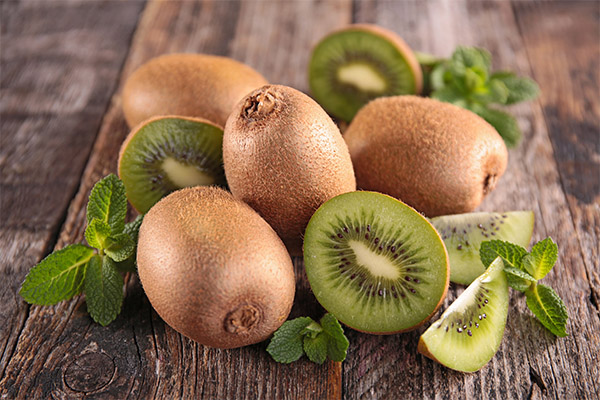
- In China, this fruit used to be called "yang tao", later it was already named "Chinese gooseberry", which eventually transformed into the well-known "kiwi". This exotic fruit got its name after the kiwi bird.
- The kiwi fruit can ripen faster if placed in a paper bag along with an apple, pear or banana.
- A kiwi is a natural alternative to aspirin. The fruit produces an effect on the body commensurate with the medication - reducing the risk of blood clots and heart attack.
- Although kiwi is commonly referred to as a fruit, it belongs to the berry group. It has a brown fuzzy rind, bright green flesh and dark seeds in the core of the fruit.
- The size, color of the rind and flesh, flavor, and texture of kiwifruit depend on the species. Hairless varieties are also on sale.
- More than one million tons of kiwifruit are produced each year. Most are produced in Italy, New Zealand and Chile.
- Kiwis are consumed by some animals, such as monkeys and deer.
- The plant on which the fruit grows can produce fruit for 30 years.
- Bees are the primary pollinators of kiwifruit, but farmers sometimes artificially pollinate the plants themselves.
- After peeling the kiwi fruit, do not immediately throw away the peel. They can be used in recipes for facial masks or simply to wipe the skin with the inside of the peel. Juice from the peel of the Chinese gooseberry will help tone, tighten and rejuvenate the skin.
- The kiwi fruit growing in the wild is usually quite small. The average weight of the fruit is about 30 grams, but cultivated plants produce larger fruits that can weigh as much as 100 grams.
- Kiwis contain an enzyme that prevents gelatin from hardening. For this reason, the fruit should be steeped in boiling water before preparing the dessert.
- In the early 1990s, a type of kiwi was bred in New Zealand, which was called "golden". The fruits of this species are quite expensive, and they are practically not supplied to the CIS countries.
«Important: all information on the site is provided for informational purposes only only for information purposes. Before using any recommendations, you should consult a specialist. specialist before applying any of the recommendations. Neither the editors nor the authors shall be liable for any possible harm caused by materials."

